MercoPress. South Atlantic News Agency
Environment
-
Monday, February 5th 2024 - 11:01 UTC
Chile: Multiple wildfires leave 112 dead; could be more, Boric warns

According to the latest bulletin from Chilean authorities Sunday, at least 112 people had been killed as wildfires kept multiplying nationwide during the weekend, particularly in the Valparaiso region. Some 40,000 people have been left homeless or displaced, it was also reported.
-
Saturday, February 3rd 2024 - 10:47 UTC
Heat wave grips Argentina, Chile, Uruguay, Paraguay and Brazil
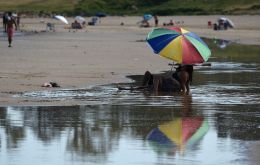
Media reports all across the Southern Cone Friday underlined the heat wave affecting Argentina, Brazil, Chile, Uruguay, and Paraguay with temperatures reaching 48 degrees Celsius and forecast to remain around or above 40 degrees for several days.
-
Saturday, February 3rd 2024 - 10:28 UTC
At least 10 killed in simultaneous wildfires across Chile
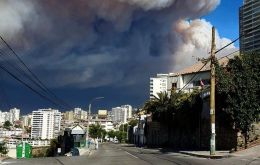
At least ten people were reported Friday to have died in Chile as forest firest gripped the Valparaíso area, where President Gabriel Boric Font decreed a state of emergency.
-
Thursday, February 1st 2024 - 23:44 UTC
Red Sea attacks force vessel with 16,000 live sheep and cattle to return to Australia

A ship carrying 16,000 sheep and cattle to Israel and that had been stranded off the coast of Australia in extreme heat conditions has returned to a Perth port. MV Bahijah abandoned its journey through the Red Sea - where Houthi fighters in Yemen have been attacking ships - leaving the animals stuck on board for weeks.
-
Wednesday, January 31st 2024 - 11:07 UTC
Tales from the Southern Seas: A Uruguayan in the Falklands
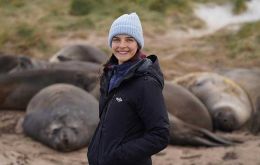
Bettina Alberti Arriaga, who was the student competition winner from Uruguay, has published an article about her visit to the Falkland Islands.
-
Tuesday, January 30th 2024 - 10:50 UTC
Effects on climate change by disturbing the seabed, BAS and Norway scientists
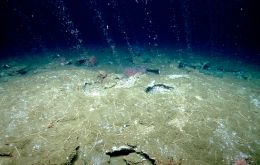
A study published this month in the journal Frontiers in Marine Science reveals that disturbing the seabed, through activities such as trawling, could increase the scale and speed of climate change.
-
Tuesday, January 30th 2024 - 10:43 UTC
UK Commons committee has an “air tour” of South Georgia island and advancing icebergs

The House of Commons Environmental Audit Sub-Committee on Polar Research, EAC, visiting the Falkland Islands on their way to Antarctica in December enjoyed an ”air tour'' of South Georgia island.
-
Tuesday, January 30th 2024 - 10:41 UTC
Survey in Falklands' small islands shows avian flu is continues to threaten
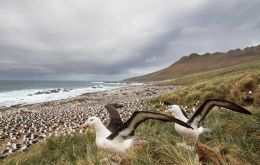
Following on the Falkland Islands Natural Resources Department update on confirmed avian influenza (bird flu) case – Steeple Jason Island, northwest of the archipelago, it has been reported that Falklands Conservation carried out a surveillance visit in January 2024 and found dead albatross chicks in their thousands as well as low levels of rockhopper and skua mortalities. A further set of several more swabs were collected.
-
Monday, January 29th 2024 - 10:43 UTC
Ice Patrol HMS Protector is helping to study the impact of tourism on Antarctica
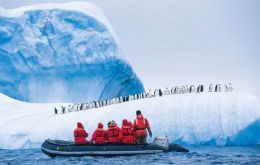
The Royal Navy Ice Patrol HMS Protector took scientists on an Antarctic research cruise to analyze the increasing impact of tourism and climate change on the frozen continent, a challenge which has been underlined by IAATO, the International Association of Antarctica Tour Operators. IAATO has pointed out that during the 2022/23 season more than 104,000 visitors traveled to Antarctica.
-
Monday, January 29th 2024 - 10:24 UTC
Mapuche Resistance behind National Park fire, Chubut governor says

Over 1000 hectares of land have burned down in the Los Alerces National Park in the Argentine province of Chubut, where Governor Ignacio Torres blamed the Mapuche Ancestral Resistance (RAM) rebel organization for starting the fire, it was reported Sunday. “There are indications that the fire was intentional,” he stressed.
